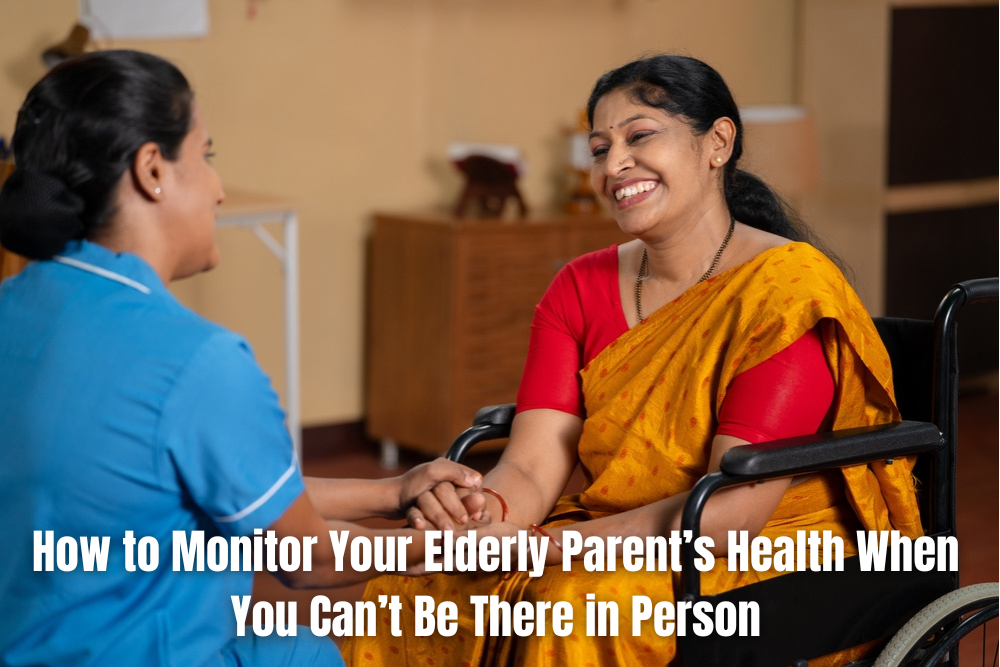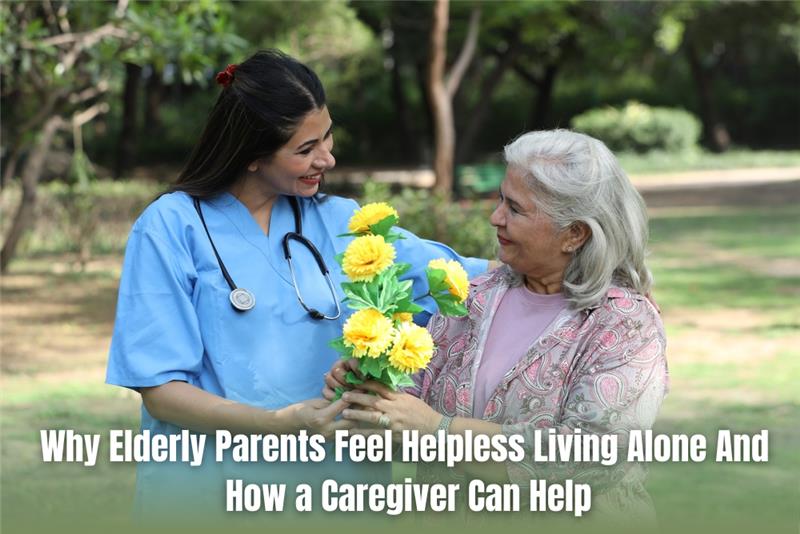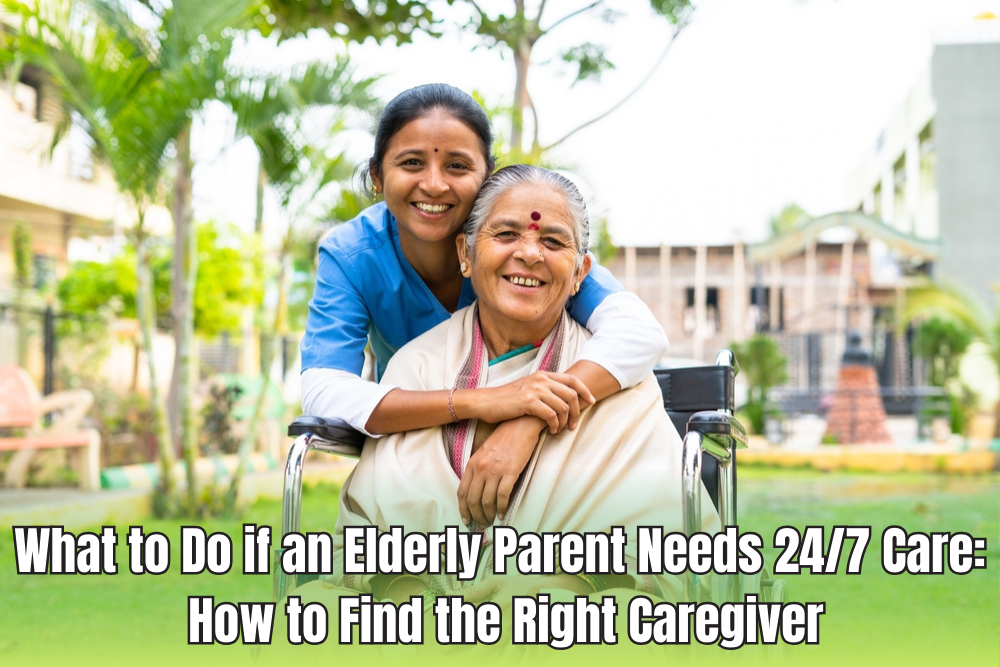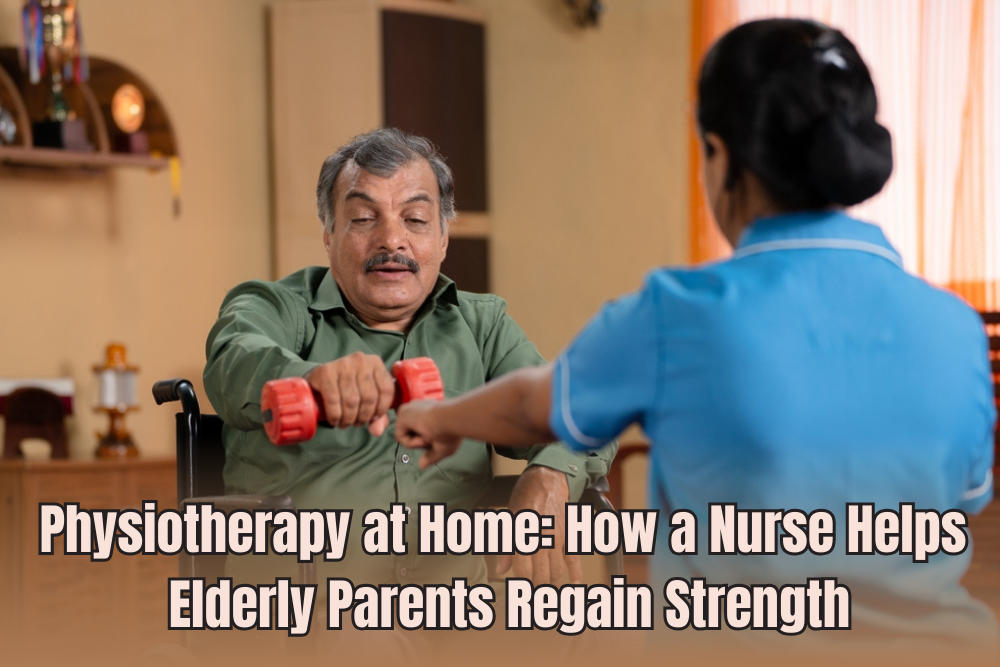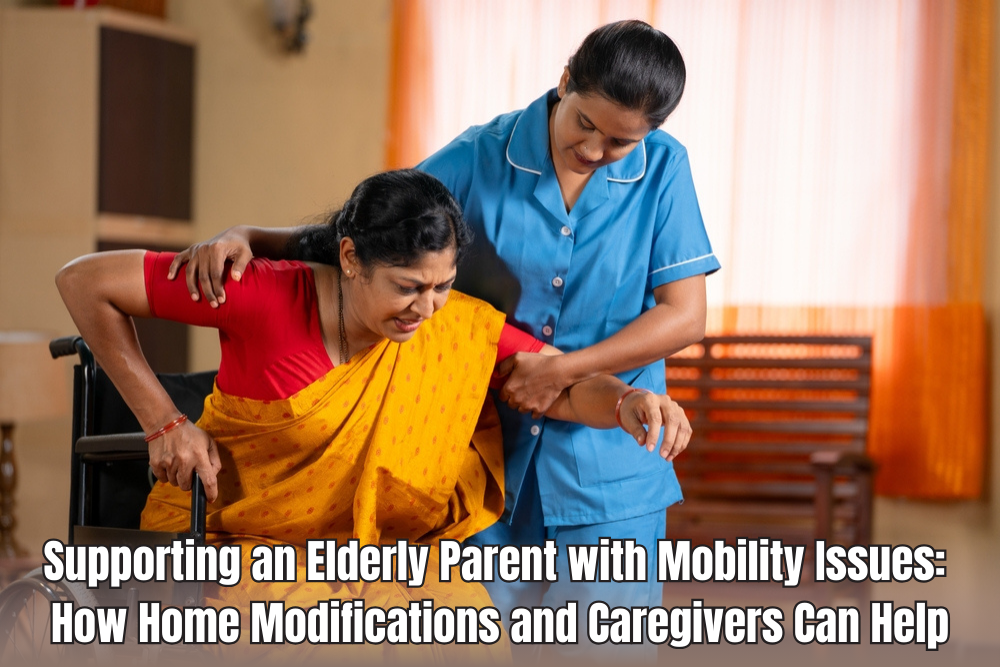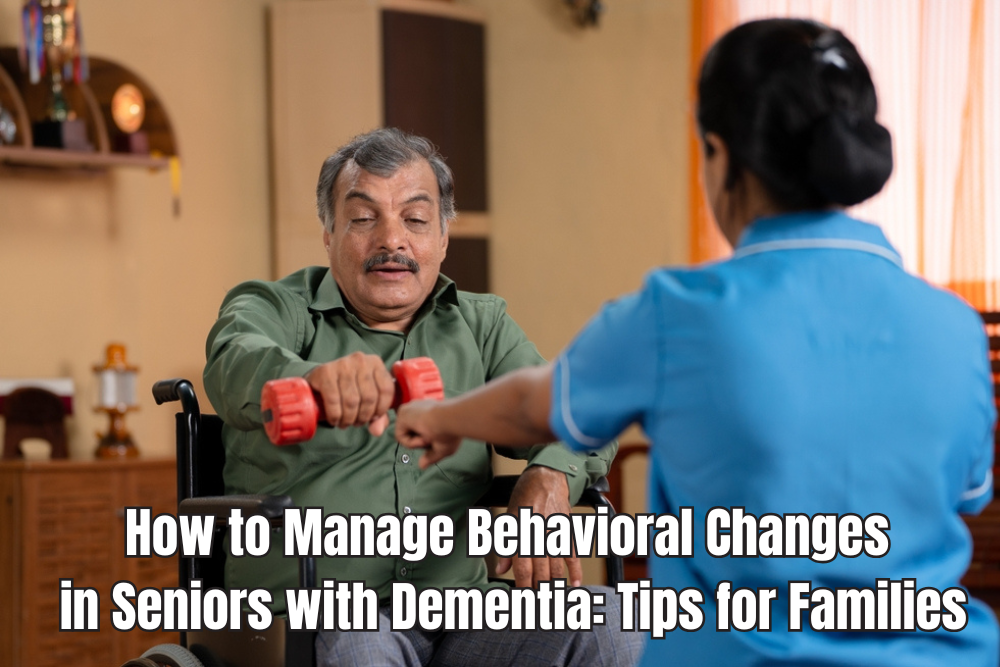Being far away from an aging parent can be emotionally challenging especially when you’re constantly worried about their health and well-being. Whether you’re living in another city or working long hours, not being physically present doesn’t mean you can’t stay actively involved in your parent’s care.
In this article, we’ll walk you through practical and reliable ways to monitor your elderly parent’s health remotely, the tools you can use, and how professional caregiver support can bridge the gap when you can’t be there.
Why Remote Health Monitoring Is Important for Seniors
As parents age, they may face multiple health issues like:
- High blood pressure or diabetes
- Dementia or memory loss
- Respiratory problems like COPD or asthma
- Post-surgical recovery
- Frailty, balance issues, and fall risk
If left unchecked, these conditions can lead to complications. Consistent monitoring helps detect early warning signs and ensures timely treatment preventing hospitalizations and health deterioration.
How to Monitor Your Elderly Parent’s Health from a Distance
1. Hire a Trained Caregiver or Nurse
A trained caregiver or home nurse is the most dependable way to ensure daily health checks, medication management, and safety supervision.
Caregivers help by:
- Checking vital signs (BP, sugar, temperature, oxygen)
- Ensuring timely medication and meals
- Observing mood, mobility, and sleep patterns
- Reporting any changes to you immediately
With services like Shree Swami Samarth Patients Seva, families can hire trusted caregivers for full-time or part-time elderly support at home in India.
2. Use Health Monitoring Devices at Home
Equip your parent’s home with basic digital health devices that are easy to use:
- BP Monitor
- Glucometer (for diabetes)
- Pulse Oximeter
- Thermometer
- Weighing scale
Ask your caretaker or parent to share the readings daily through WhatsApp, email, or an app.
3. Set Up Video Calls and Check-Ins
Create a routine of video or audio calls to:
- Observe your parent’s appearance and mood
- Ask about how they feel, sleep, eat, and move
- Speak directly with their caregiver or nurse if needed
You can schedule short morning or evening check-ins for peace of mind.
4. Use Health Monitoring Apps
There are many apps that help caregivers and family members stay updated:
- Caregiver logs: Apps where daily health data is entered and shared
- Medication reminder apps: Alert both caregiver and family when it’s medicine time
- Fall detection and SOS apps (if your parent has a smartphone or smart wearable)
5. Keep Doctor Appointments on Track
Coordinate with the caregiver to:
- Ensure your parent attends doctor appointments (virtual or in person)
- Maintain a file of reports and prescriptions
- Share updates and lab results with you in real-time
You can also join video consultations if your doctor allows it.
6. Install Home Safety Tools
If your parent lives alone, consider these tools:
- Motion sensor lights
- Grab bars in bathroom and hallways
- Emergency calling systems (pendant or wall button)
- CCTV (if consented to) to check movement or safety status
Combined with regular caregiver presence, these safety tools greatly reduce risk.
Benefits of Caregiver Support When You’re Far Away
When you’re unable to be physically present, a reliable home caretaker or nurse becomes your eyes and ears.
Here’s how professional support helps:
- You get daily updates on health, mood, and medications
- Your parent feels emotionally supported and cared for
- You avoid last-minute emergencies due to missed signs
- You maintain peace of mind and reduce your own stress
At Shree Swami Samarth Patients Seva, caregivers are trained to monitor health, assist with daily living, and provide emotional companionship—while staying in touch with the family as needed.
FAQs: Monitoring Elderly Parents’ Health Remotely
- How can I monitor my parent’s health if I live abroad?
Hire a trained caregiver or nurse, set up health monitoring tools at home, and schedule regular video calls with both your parents and the caregiver. - Can I get daily updates from a caretaker?
Yes, professional caretakers can provide daily health updates through WhatsApp, email, or phone as per your preference. - What if my parents refuse to use digital tools?
Keep it simple start with calls and a local caregiver. Gradually introduce easy-to-use devices or ask the caretaker to manage them. - Are these services available across India?
Yes, services like Shree Swami Samarth Patients Seva (www.sssps.in) offer experienced caregivers and nurses across several cities in India. - What should I do during an emergency?
Ensure the caretaker knows emergency contacts and hospital details. Also, keep your local network (relatives/neighbors) informed for quick support.
Conclusion
Even if you’re far from your aging parents, their health and happiness don’t have to suffer. With the right mix of caregiver support, technology, and regular communication, you can stay connected and in control of their well-being.
If you’re looking for trusted, professional caregivers or nurses who can be there when you can’t, reach out to Shree Swami Samarth Patients Seva and ensure your loved one is in safe, caring hands.


